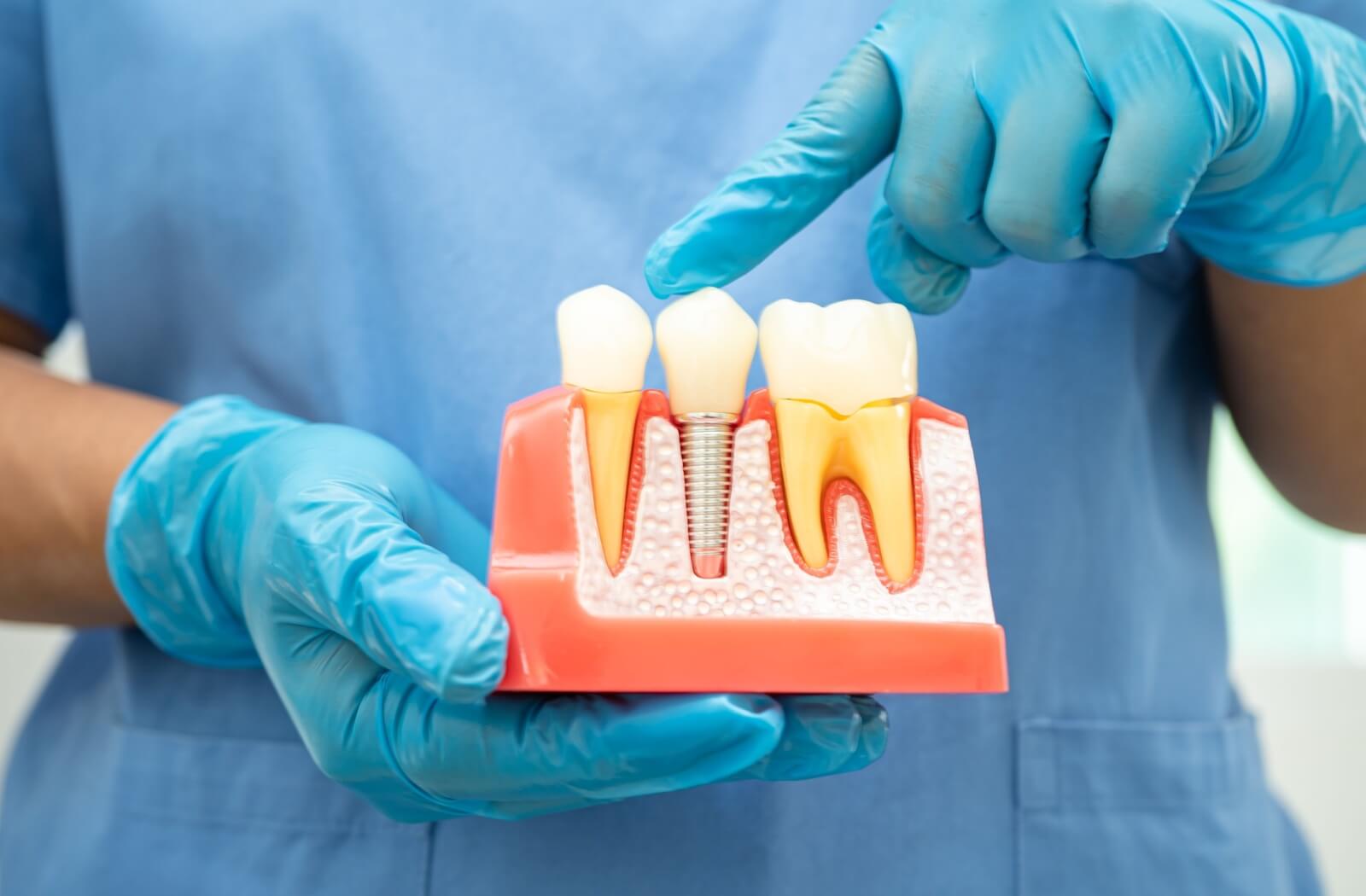Adults aren’t supposed to lose teeth. Yet for millions of people, tooth loss happens, and it brings along a host of challenges and health effects. According to the World Health Organization, 350 million people around the world experience complete tooth loss.But there are ways to manage missing teeth. Modern dentistry offers options such as dental implants, bridges, and full or partial dentures to replace the look and function of natural teeth. If you’re experiencing tooth loss, ask your dentist which option they recommend for your unique situation.

Missing Teeth: Causes & Consequences
Losing baby teeth is a childhood milestone, but permanent tooth loss in adulthood can lead to problems. Tooth loss can happen due to injuries, medical conditions, or poor oral health.
Why Tooth Loss Happens
Causes of tooth loss include:
- Gum disease: Bacterial infections not only affect your gums, but they can also lead to bone loss in your jaw. Gum disease is also associated with more serious health conditions like heart disease.
- Injury: A blow to the head or jaw can cause teeth to dislodge. If this happens to you, seek emergency care right away.
- Tooth decay or cavities: Poor oral hygiene can lead to degradation of the tooth enamel over time, causing holes to appear and, in later stages, tooth loss.
- Autoimmune disease: Disorders like Sjörgen’s syndrome can put people at a higher risk of tooth loss.
- Malnutrition: Scurvy, a condition where a person lacks vitamin C, can cause teeth to loosen and fall out.
Importance of Treating Missing Teeth
Replacing missing teeth isn’t just about restoring the look of your smile. Missing teeth can lead to consequences such as bone loss in the jaw or temporomandibular joint (TMJ) disorder. It can also affect speaking and eating.
The remaining teeth may move around to compensate for the missing teeth, leading to a poorly aligned bite (malocclusion). Teeth that have shifted position can also be harder to clean, putting you at higher risk of gum disease and cavities.
Finally, missing teeth can affect facial structure. With less structural support, the face may begin to sag.
Options for Replacing Missing Teeth
Your options for replacing missing teeth depend on your unique situation (such as how many teeth are missing), oral and general health, and budget.
Dental Implants
A dental implant consists of an artificial root and tooth. The root, made of titanium, is surgically embedded into the jawbone to anchor the synthetic tooth. Dental implants can be an appropriate option for people who have otherwise healthy gums and a healthy jawbone.
A dental implant looks and functions like a natural tooth—but this means you must care for it like a natural tooth. Just like the teeth you were born with, dental implants require regular brushing, flossing, and dental check-ups.
Bridges
A dental bridge can replace 1 or more missing teeth by literally “bridging” the gap created by the absence of teeth. The bridge is anchored in place by teeth on both sides of the gap. If existing natural teeth aren’t strong enough, dental implants are used to anchor the bridge.
There are several types of bridges, including traditional bridges, implant bridges, Maryland bridges, and cantilever bridges. If cared for properly, bridges can last a decade or longer.

Dentures
Dentures are removable appliances designed to replace missing teeth and restore both function and appearance. They are custom-made to fit an individual’s mouth and can be used to replace all teeth (complete dentures) or a few missing teeth (partial dentures).
Dentures should be regularly cleaned with a dedicated cleaning solution. You should also soak your dentures overnight in warm water to give your mouth a break. Regular dental visits (at least once a year) are required for denture users because teeth may shift over time, which means dentures need to be adjusted on occasion.
Is Tooth Loss Preventable?
While accidents can’t always be avoided, tooth loss caused by poor oral health is preventable. Take the following proactive steps if you want to reduce your risk of losing teeth:
- Brush your teeth every day after waking up and before going to bed.
- Floss at least once a day, every day.
- Get regular dental check-ups and cleanings. How often you need to visit the dentist depends on your individual circumstances. Discuss this with your dentist.
- Stay hydrated. Drinking water flushes out food deposits and bacteria. It also helps prevent dry mouth.
- Be mindful of your sugar intake.
- Avoid smoking or vaping tobacco or cannabis. Better yet, quit.
Tooth Replacement Options at de Man & Höediono Dentistry
Missing teeth aren’t just related to how your smile looks. This condition can affect your oral health and nutrition. The good news is that, with modern dental treatments, replacing missing teeth is possible.
Ask us about tooth replacement options in Kitchener at de Man & Hödiono Dentistry. We offer dental implant restoration, implant-retained dentures, All on 4 dental implants, and full and partial dentures. We can also talk to you about bridges. To start discussing your options, book an appointment with us today.